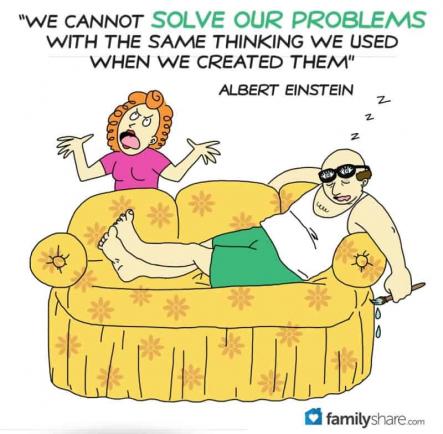
You're no longer the newlyweds on the block. You're in a committed relationship and you and your sweetheart have been together a long time. This something to celebrate. Life is good - for the most part. However, a major conflict has rendered you both ready to strangle each other. Worse, it's affecting your children or other members of your family. How do you remedy the situation without resorting to regretful actions, and causing more contention?
First, look in the mirror and decide if you're the problem, not your companion. When my spouse and I got married, our communication skills weren't the greatest. Twenty-years later, I look back on those days and realize we needed to learn effective communication to really solve our problems. It is vitally important that both of you share your feelings and reasons why you feel the way you do. Then you can brainstorm ideas for solving the problem - without contention. These tips will help in settling conflict with your significant other.
Calm Down
It's very hard to get your point across if you're too angry to even speak. The best thing is to let the dust settle. If needed, take a 15-minute timeout. Have your significant other do the same. You will get much farther when you're both ready to talk.
Listen to your significant other
When you truly listen and try to see the other's point of view or validate the other person's feelings, you will usually understand his reasoning and therefore the conflict. Once the person has spoken, try relating what the person said back to them, so fewer misunderstandings occur and correct communication is established again.
Solve the conflict so both are satisfied with the outcome
Sometimes compromise can be quite difficult in a relationship and pride can be trampled on, but if we love the person, we should be willing to give as well as receive. We may not wholeheartedly agree, but by taking the higher road, so to speak, we learn the true meaning of love and sacrifice. This only works if, once it's solved, it's solved. No bringing it up again.
Learn from your conflicts
Pick apart the last conflict in your mind. Focus on the good things that happened, as well as the bad. Think of new ways to communicate that maybe haven't worked in the past and be determined to work on those things in the future.
Be patient with each other
Body language expresses everything. The rolling of the eyes, crossing of arms and shaking of the head all show disdain - not love or cooperation. Instead, look in her eyes, nod, smile and even touch a leg or shoulder to convey the love you have.
Fights will happen in every relationship, but they don't have to be knock-down, drag-out fights that leave you exhausted and hurt. If some conflicts are too hard to handle alone or serious enough to warrant intervention, don't be afraid to try counseling or lean on a trusted friend for support.
If one person is willing to communicate, while the other isn't, talk to a therapist in your area who can help. Sometimes, just taking the reins yourself will help you be more understanding and may just influence your significant other to step up and get help as well.

